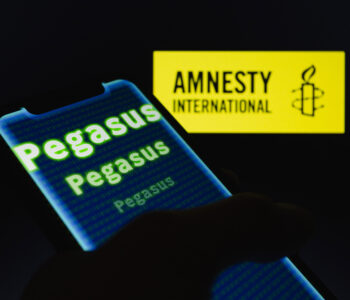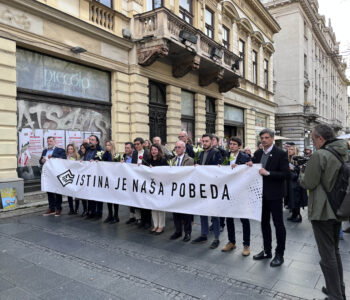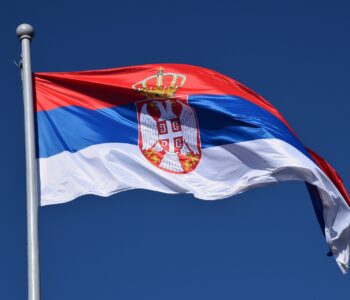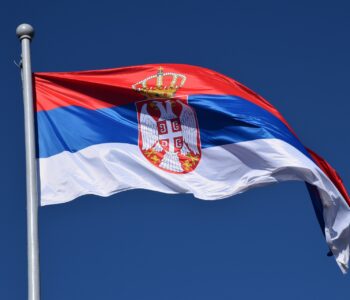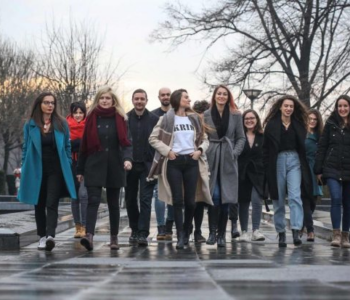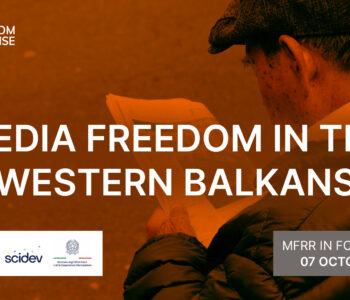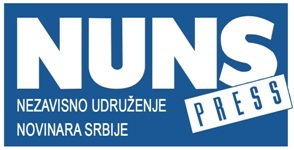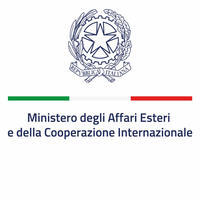In Serbia, SLAPPs (Strategic Lawsuits Against Public Participation) against independent journalists are causing increasing concerns.
What caused a stir was the start of the trial against the investigative journalism portal KRIK by a judge of the Belgrade Court of Appeal, Dušanka Đorđević, who filed both a civil and criminal case against the journalists, demanding, among other things, a ten-month prison sentence and the imposition of an accessory penalty, a two-year ban from practicing the profession.
The charge? Publishing data on the judges’ assets, which were already public. The data in question are part of KRIK’s online database “Prosudi ko sudi” (which can be translated as “examine those who judge”), which discloses to the public the properties and financial status of judges presiding over highly sensitive cases, such as the murders of Prime Minister Đinđić and journalist Ćuruvija, or cases against prominent politicians and possible connections with the criminal world.
KRIK and SLAPPs
This is not the first harassing action targeting KRIK. In fact, the portal has collected 16 of them, most of which are civil cases, but there are also criminal or commercial cases.
Over time, KRIK journalists have become accustomed to it. They know that when they write about certain topics or mention certain people, they soon find themselves facing new legal harassment. Nonetheless, journalists seem to have found a way to coexist with SLAPPs and above all a way to combat and discourage them.
Distrust in the authorities
Many SLAPPs come from individuals close to the majority party or from members of the government majority. For this reason, despite the fact that the lack of media freedom is a sore point for Serbia and one of the obstacles to accession to the European Union, as found in the most recent EU Progress Report , KRIK journalists do not believe that there is good will on the part of the Serbian authorities to contain the phenomenon.
Even if the government decides to adopt measures that reflect the content of the recent anti-SLAPP directive, as recommended on several occasions, “it is more than legitimate to suspect that such measures would in fact distort the content of the directive and turn it into another tool to muzzle the media,” as Bojana Jovanović, deputy editor-in-chief of KRIK, tells us.
Unfortunately, based on their experience, KRIK editors are doubtful about official initiatives and believe that, at best, they are merely formal efforts without any genuine will to solve the problem.
Per questo motivo, è molto meglio organizzarsi da soli e porre in atto strategie, tra organizzazioni della società civile, volte a sostenersi a vicenda e a contenere l’impatto delle SLAPP.
The strength of civil society
For this reason, it is much betterf or civil society organisations to self-organise and implement strategies aimed at supporting each other and containing the impact of SLAPPs.
KRIK’s experience is also useful for other organisations that are facing legal harassment and need to prevent those forms of intimidation that progressively lead to self-censorship and loss of quality of investigative journalism.
KRIK’s strategies are essentially based on solidarity among civil society organisations and on the public denunciation of SLAPPs. They clearly cannot replace the necessary legal assistance or material and psychological support among journalist organisations, but rather complement and strengthen them. These strategies consist of simple measures.
First, when KRIK journalists are informed that legal action has been initiated against them, they report the fact without trying to hide it, but publicly inform partners and donors that yet another SLAPP has been initiated.
In this way, the perpetrators of the harassment are exposed to the public and KRIK readers have the opportunity to show support and solidarity. This sends a clear signal that KRIK is not alone in facing legal harassment, but enjoys the support of other parts of civil society, international organisations and even diplomatic representations that care most about media freedom in Serbia.
As the case progresses and approaches the actual trial, it is very useful for the fairness and transparency of the proceedings to have independent observers following the case in court. They can be members of other professional organisations, civil society organisations, members of diplomatic representations and international organisations, both governmental and non-governmental.
Practice suggests that when there are observers present in the courtroom, tensions are reduced and the proceedings tend to follow the normal procedure, resulting in fairer treatment for defendants.
In order to better deal with SLAPPs, KRIK has joined forces with other organisations in the sector such as the Slavko Čuruvija Foundation and BIRN (the Balkan Investigative Journalism Network).
When one of these organisations is the target of a SLAPP, the others report the case through their channels and bring it to the attention of their readers.
The three organisations have decided to extend this media coverage also to local initiatives that find themselves facing similar situations.
Outside Belgrade, in fact, there are many journalists who are targeted by SLAPPs and their economic situation makes them even more vulnerable than the media in the capital, as the disproportion of forces is even greater. For this reason, when they learn of harassment against smaller outlets, in agreement with the interested parties, they report the news at the national level to discourage those who started the SLAPPs.
Finally, demonstrating that you are not intimidated by lawsuits and that you continue to do your job is another way to discourage SLAPPs. Showing that they do not have the desired effect and that journalists continue to write anyway removes the incentives to start new lawsuits.
Greater awareness of SLAPPs
In conclusion, it is also important to remember that, as Bojana argues, “now there is greater awareness of SLAPPs and not only those who work in the sector, but also the general public is learning to recognise them as another gag on the independent press”.
In the past, this was not the case; it was believed that these were limited cases and that the plaintiffs could have legitimate motivations, which could be proven in court. Now, however, we know that these lawsuits only intend to intimidate journalists and block their activity and are therefore rightly perceived in this light.
In this sense, it is important to continue to educate the public and spread awareness about this form of legal harassment.
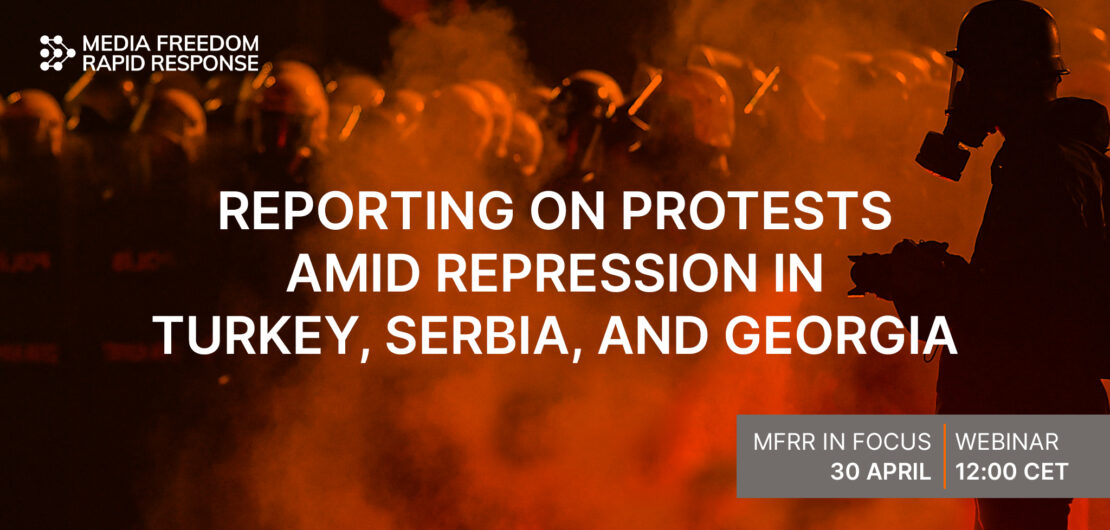 Event
Event




